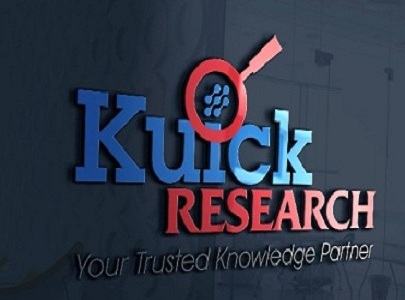
Biosimilars have emerged as one of the most promising segment of the European pharmaceutical industry in recent years. The biosimilars segment has been experiencing a steady growth driven by patent expiration of blockbuster drugs, amenable regulatory framework, economic incentives along with favorable pricing and reimbursement policies adopted across multiple markets in Europe. The current biosimilars market is highly fragmented in nature due to their accessibility in various therapeutic categories. The European biosimilars market is divided into various categories: Granulocyte-colony stimulating factor (G-CSF or GCSF), erythropoiesis-stimulating agents (ESAs) and somatropin biosimilars, Insulin, mAbs and follitropin. The present market fragmentation is driven by the availability of particular biosimilar products which were introduced over a decade ago. These products created niche among them and resulted in inclination toward a particular segments over a period of time.
One of the most promising factors responsible for the development of biosimilars market is the patent expiration of reference drugs. The European biosimilars market is experiencing tremendous growth as blockbuster biologic drugs are going off-patent. The entry of new biosimilars due to patent expiry into various therapeutic indications has created a new category for the biosimilars. For instance, Ely Lily and Boehringer Ingelheim have already got marketing authorization of their biosimilar insulin in June’2014 even as the current diabetes drug (Lantus) marketed by Sanofi will go off patent in February’2015.
The competitive pricing and reimbursement policies adopted by country specific regulators are also promoting the introduction of biosimilars in European market. The newly introduced biosimilars are approximately 20-30% cheaper and hence results in high level of acceptability among patients and physicians in comparison to originator molecule. The benefits of using the biosimilars include reimbursement provided by many governments which further decreases the financial burden from the patients as result of which they do not revert to originator molecules.
Currently there are 18 biosimilars available in European market and more than 90 are in multiple phases of development in clinical pipeline. Majority of the available biosimilars are approved for the treatment of indication like Cancer, Kidney Failure and Anemia. Approved Biosimilars in Europe:
Abseamed (epoetin alfa), Bemfola (follitropin alfa), Binocrit (epoetin alfa), Biograstim (filgrastim), Epoetin Alfa Hexal (epoetin alfa), Filgrastim Hexal (filgrastim), Grastofil (filgrastim), Inflectra (infliximab), Nivestim (filgrastim), Omnitrope (somatropin), Ovaleap (follitropin alfa), Ratiograstim (filgrastim), Remsima (infliximab), Retacrit (epoetin zeta), Silapo (epoetin zeta), Tevagrastim (filgrastim), Zarzio (filgrastim), Wepox (epoetin alfa)
“Europe Biosimilars Market & Pipeline Insight” Report Highlight: